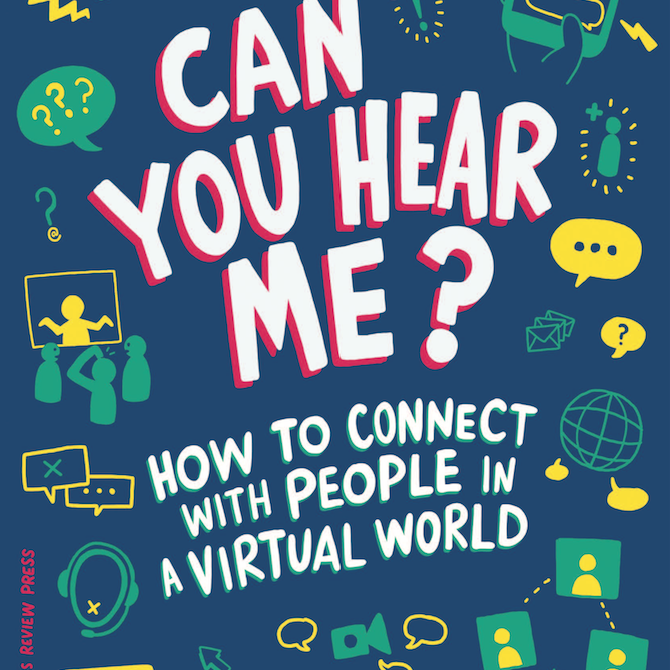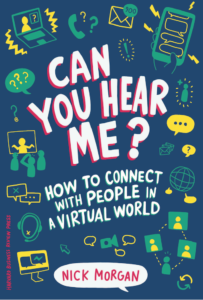
 I just finished an advance reader copy of, “Can You Hear Me: How to Connect with People in a Virtual World.” It’s written by Dr. Nick Morgan of Public Words, a friend and mentor who never steers me wrong.
I just finished an advance reader copy of, “Can You Hear Me: How to Connect with People in a Virtual World.” It’s written by Dr. Nick Morgan of Public Words, a friend and mentor who never steers me wrong.
Dr. Morgan is an expert on communication and body language, and, in this new book, he tackles the 21st-century challenges of communicating feelings and emotions on mobile and electronic devices.
Why does email suck so much? Why don’t people understand what I’m trying to say? Why does my Mom feel like she needs a LinkedIn account?
What’s The Book About?
The book highlights five fundamental problems with virtual communication at work and in life — from lack of feedback, our societal shortage of empathy, loss of control, limited emotional bandwidth, the trouble with connection and commitment — and offers evidence-based solutions to help us communicate more effectively.
Grounded in research and neuroscience, Dr. Morgan challenges us to know better and do better. He wants us to communicate more intentionally. Use language to check in with our colleagues and friends to ask how they feel. And, instead of racking up friends and followers, go slower in establishing common ground and trust to build meaningful and lasting relationships.
How Can This Book Help Me?
I’m a fast thinker and an aggressive texter. My personality is loud and bombastic. And, boy, I’m a terrible virtual communicator. I found myself taking notes throughout the book. Without the benefit of my smiley face or sweet voice, I now understand why some people may think that I’m more angry or cynical than I am online.
Dr. Morgan offers multiple suggestions in the book to optimize the way we communicate online. He even suggests we think about why we’re online in the first place. Beyond email etiquette, this book offers practical and timely ways to enhance our personal and professional connections in the virtual world.
Where Can I Buy This Book?
You can pre-order a copy of “Can You Hear Me Now” on Amazon, or head over to Dr. Morgan’s website to learn more about the book. If you’re a leader who manages remote teams — or a human being who wants to bridge the digital divide and have more meaningful relationships — this book is a must read for you and your colleagues. I can’t recommend it enough.
You must be logged in to post a comment.